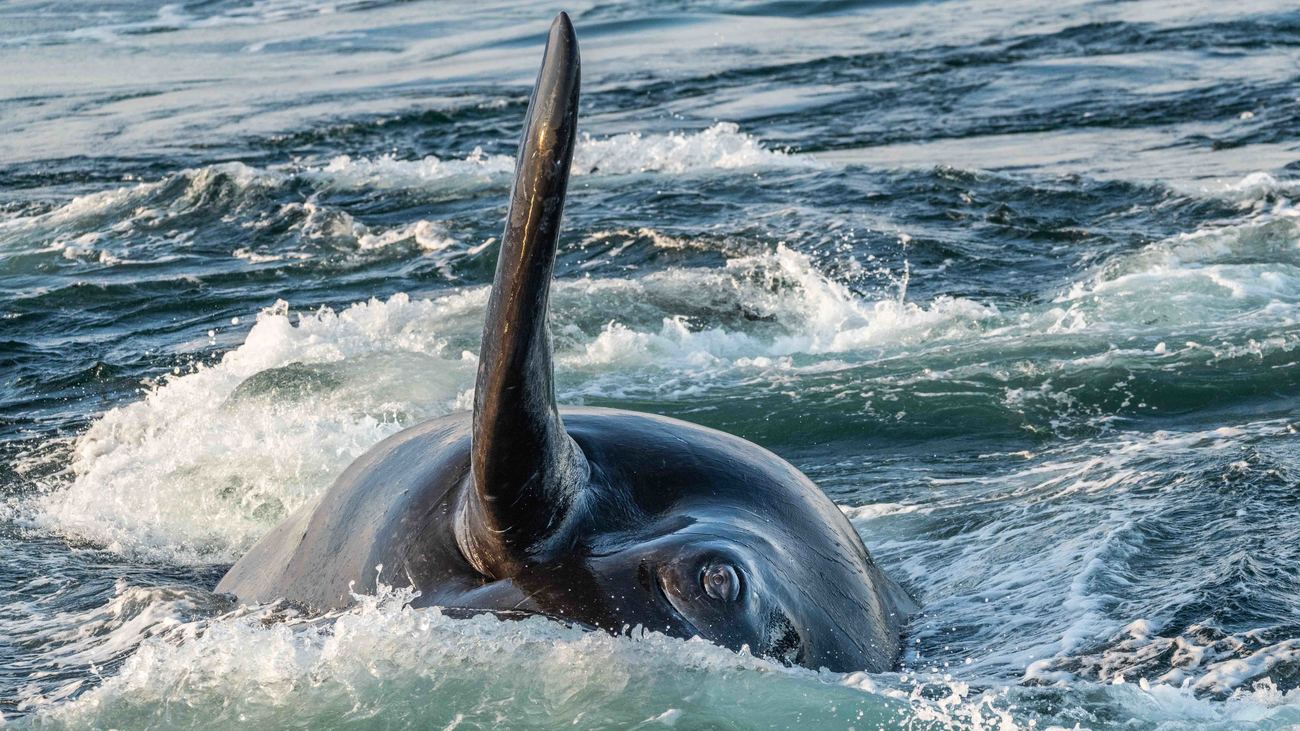Saving the North Atlantic right whale - North America
Don't fail our whalerenewing a fundamental legislative commitment on world whale day
renewing a fundamental legislative commitment on world whale day

To unearth a solution to a problem, it is often said that one must start from the truth—and then work your way from there. This is as true of the resolution of problems within the realm of nature as it is of those within human society. Though our legislative successes as a nation are punctuated by periods of both tension and tumult, the traditions of government afford us the opportunity to begin anew every few years, to reset the stage for our continued survival. This World Whale Day (February 21st), let us use that stage to mark a new beginning for a species that has accompanied our society and culture through centuries of history, the North Atlantic right whale. And thus, let us begin by facing some hard truths, made evermore clear by the death of a critical young right whale calf last week.
From its migratory routes that span the length of the Atlantic coast from New England and Canada to Georgia and Florida, the North Atlantic right whale has earned the endearing nickname of 'America’s whale.’ Yet, its once-thriving population of tens of thousands now lies sparse and thirsting for survival with an estimated 360 individuals driven to scarcity, historically by whaling, but in the present day, by incidental entanglement in commercial fishing gear and unintended vessel strikes. Now the term ‘critically endangered’ is the unfortunate label of choice when referring to ‘America’s whale’.
These are the hard truths and uncomfortable facts. Thankfully, there are indeed glimmers of hope this World Whale Day—14 glimmers to be exact. Each representing one of the 14 new right whale calves documented so far during the current calving season, including five born to first-time mothers. Sadly, an additional calf born this calving season was reported dead just last week, stranding off the coast of Florida. The calf showed obvious signs of trauma from vessel strike and is the first right whale death reported in U.S. waters this year, and the third calf death reported over the last thirteen months.
Every hopeful birth is too often outweighed by the sad reality that in the last four years alone, 47 North Atlantic right whales have either died or have sustained injuries so severe they are presumed to have died. This is exacerbated by the shocking fact that at least 70% of those deaths have resulted from either entanglement or vessel strikes, the two main threats preventing the population’s recovery.
An opportunity to pass critical legislation for the right whale
This past month, a new Administration has begun to carve its own path and priorities on the environment. It is imperative to highlight the opportunity we have to salvage a species that has accompanied us for centuries, refreshing our own commitment and calling to be stewards of our wildlife resources. At the federal level, we have an opportunity to make our voices heard through the Federal public comment period involving NOAA’s proposed mitigation measures to protect right whales from entanglement. It is incumbent upon us to send a strong message to the Federal Government. By embracing science, implementing 21st century technology, and proactively engaging stakeholders and the general public, long-term “on-the-water” changes needed to set the right whale upon a road to recovery will be promoted.
Currently, there is promising legislation within Congress in the form of the SAVE Right Whales Act. Reintroduced last Congress by Sen. Cory Booker (D-NJ) and Rep. Seth Moulton (D-MA-6), the act provides $5 million annually over ten years to develop, test, and implement innovative technologies like ‘ropeless’ fishing gear that eliminates the need for vertical buoy rope in the water column, hence preventing entanglement while continuing to allow commercial fishing. This is a dual-pronged approach that addresses an immediate survival problem for right whales while simultaneously supporting a thriving fishing industry. It is the introduction and passage of such critical legislation that will play a key role in helping to provide the safe passage so desperately needed by right whales.
The International Fund for Animal Welfare and other organizations are working to promote these on-the-water solutions, including ropeless fishing, to address head-on the key threats to right whales to achieve a reality where mankind and wildlife not only coexist, but thrive together. A reality where the errant mentality of ‘us or them’ is replaced by a deeper-rooted mentality of ‘us together’.
As it stands now, the numbers are sobering, the outlook ominous. But, long-term solutions are at hand with success achievable if we commit to the correct path. A path formed by the bonds of collaboration between governments, NGOs, and industry, supported by informed, citizen consumers that demand whale-friendly seafood.
On World Whale Day, we urge Congress to continue its legislative commitment to the North Atlantic right whale and to address without hesitation one of the most pressing conservation challenges of our time. For the sake of stewardship as well as that of industry, we must recognize the ocean as a shared space and embrace the continued existence of a species that has shared in our nation’s history for centuries. As the country endeavors to address the challenges upon our domestic shores, let us not fail to address those challenges that lie off those shores as well.
-CT Harry, IFAW Marine Campaigner
Related content
Our work can’t get done without you. Please give what you can to help animals thrive.